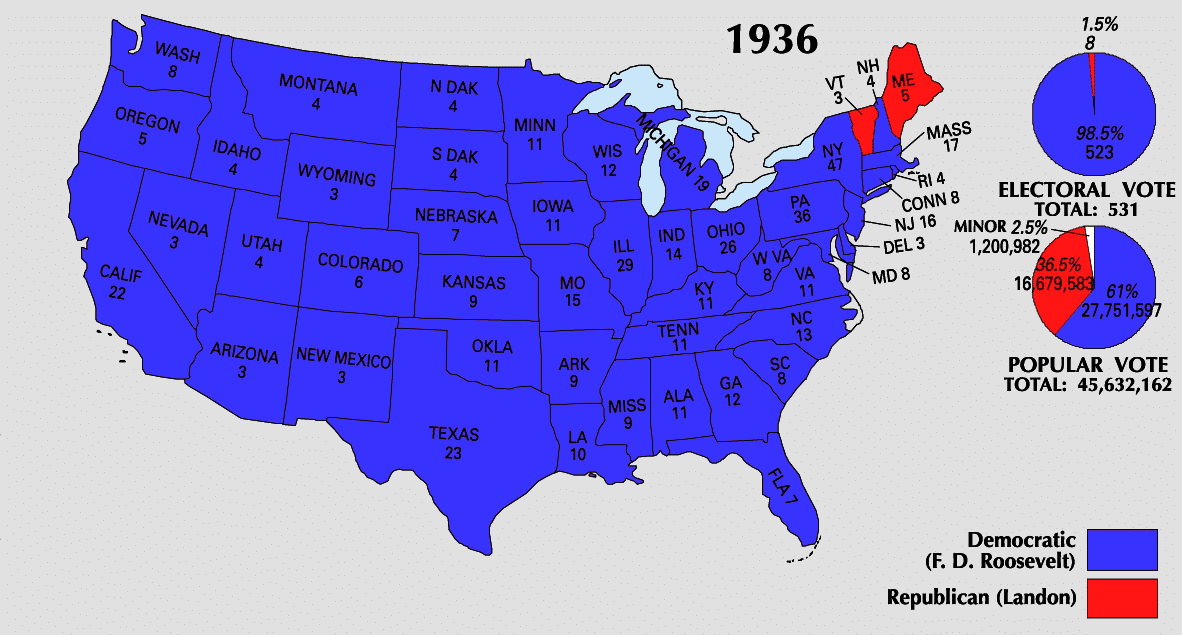The Presidential Election of 1936 would occur during the Great Depression and would be a time of realigning of political parties.

Franklin D. Roosevelt had begun his New Deal after winning the election of 1932. While his actions were noble, they did little to stop the depression. the depression continued despite his reforms. However, he did give Americans hope and a vision into the future.
While the New Deal seemed admirable, Roosevelt was beginning to violate the Constitution in order to get his legislation passed. His New Deal was accused of being wasteful and inefficient. However, Americans were looking for answers, and Roosevelt seemed to have them.
Throughout FDR's first term, he utilized the radio to communicate with Americans. These fireside chats were important to Americans as they would often gather around and listen to the President and hear the state of the Union. His oratory skills were excellent, and most Americans trusted him.
The Republicans did not seem to have much of an answer in this election.
The Candidates were as follows:
- Republican: Alf Landon and Vice President Frank Knox
- Democrats: Franklin D. Roosevelt and Vice President John Nance Garner
Platforms
Republicans: The issue that the Republicans had was that they generally agreed with Roosevelt's reforms but thought it was handled in an inefficient manner. Couple this with the poor campaigner Alf Landon, and they did not have much to distinguish themselves from the Democrats. Towards the end of the campaign, Landon began to accuse Roosevelt of corruption as he saw his power increasing and a violation of the Constitution.
Democrats: Roosevelt promised more of the same and continued to cast a vision that would lead the Americans out of this nightmare. The New Deal remained popular with Americans as it seemed as if it was the only way out of the mess the economy was in. The most opposition FDR would face was in the Democratic primaries by some Democrats who opposed the New Deal.
Outcome
FDR won in a landslide, and it would be the most dominant electoral victory with the exception of George Washington in 1789 and 1792, James Monroe in 1820, and eventually Ronald Reagan.
This also would mark a shift in the national electorate as there was a solid shift to the Democrats. The Democrats would also take majorities in the House, and the only thing that would remain in Republican control would be the Supreme Court.
It was clear that the Republicans were being blamed for the Great Depression and that the nation wanted nothing to do with the party. Only two states voted against FDR, which were Maine and Vermont.
FDR would go on to continue his New Deal, but the next election would not be so easy as he would try and become the first President ever to be elected to three terms.
